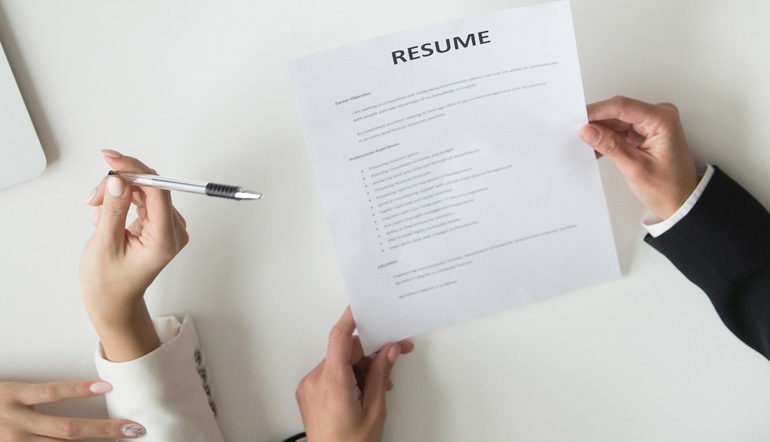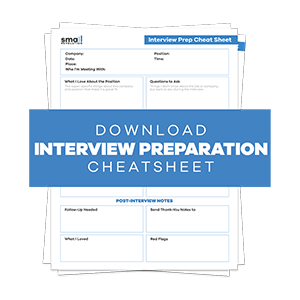So, you are ready to get back out there and give it your best shot. You already have your resume all done and written, and it looks good. There is only one little bump on your road to success – there is an employment gap in your resume.
If that gap is a month long, or even two, employers won’t look into it too much. You can probably make it work even with a 6-month resume gap. However, if your gap is longer, you will need to address it.
Why is the resume gap such a big deal? You are the same person before and after it, aren’t you?
The truth is – some are and some aren’t. There are people who are not able to hold down a job due to many reasons. Some of them are justified and some of them aren’t.
The recruiters are afraid that they will invest the company’s time, money and resources in the wrong person.
It is up to you to explain that you are a real professional who is ready to get back in the saddle. Sometimes, this is easier said than done.
Here are some of the issues people worry about when it comes to writing their cover letter:
- Is my cover letter just a copy of my CV?
- Is my work still relevant after all this time?
- Should I say what I was doing all this time?
Answers to these questions are actually some of the main rules and guidelines for writing a cover letter, so let’s start with them.
Main Rules for Career Break Cover Letter
There are many specific rules for writing a cover letter, but let’s start with some general principles and work our way down to the specifics.
- No. Your cover letter is not simply your resume in a longer, differently structured form. The recruiters have already seen your CV. They don’t need to learn the facts from it all over again.
Your cover letter is another chance to prove that you are the perfect candidate. Use it to explain why you are the perfect fit and what you love about the job. Also, use it to address your employment gap. - Keep it short. Your cover letter should never exceed one A4 page. Even that is a stretch. Keep it short, informative and to the point.
- Make it original. Recruiters will get hundreds of cover letters. If yours is generic and doesn’t respond to the job posting they created, it will fail. Recruiters can spot generic letters from a mile away.
- Include professional contact details. Don’t use email addresses that belong to a member of your family, or the emails that are funny. If possible, create a special, professional email address just for job applications.
- Mind how you start and finish your cover letter. Start it by addressing the employer or recruiter by their name (if you can discover it) and finish it with ‘Yours sincerely’.
Three Main Elements of a Career Break Cover Letter
It is time to get a bit more specific and to deal with the elements that are a part of every well-written cover letter. You need an introduction, a body, and a conclusion. Simple, right? Well, yes and no.
There are a lot of details in these three elements and there is a lot to be said about each of them. Let’s start with the introduction and list some tips on how to write it well.
Cover Letter Introduction
Keep the introduction brief, clear and to the point. Explain who you are and what is it that you do. Emphasize your career and not on your break.
This is also the moment when you should mention the position you are applying for. Make it all as short as an elevator pitch.
After you have introduced yourself, it is time to address the break. Give it a sentence or even just a half of it.
Simply state that you are “enthusiastic to get back to work after a 4-year parental break.” Mention why this position is just perfect for you to return to work.
The last part of this section should be dedicated to listing the activities you had during your break. Maybe you did some training, attended some refresher courses, or volunteered.
Perhaps you took the time to take a course for online work. Anything that shows you used your time to keep your old skills fresh or to gain some new ones is useful.
Cover Letter Body
This part of your cover letter is all about listing your achievements, accomplishments, skills, and explaining why you are the best fit for the job.
Your letter should make you shine, so go through these useful tips before you type a work of it.
Start by analyzing the job advert. Take a look at the top 4-6 requirements for the position. Then go through your work history and skills list and make a match.
The point is to provide evidence from your work history that you have what it takes to fulfill the role.
Remember, you only need to list those skills that are mentioned in the job advert or those that are closely related to them. Don’t go on listing everything you can do.
You are creating too much text in which the relevant skills for the job will simply drown and become invisible.
When listing your skills, keep in mind that there are those phrases that were used so much, they lost every meaning.
Words like “team player”, “detail oriented”, and similar, only take up precious space without adding anything to your cover letter.
Also, it is time to answer one of those three questions from the beginning – it is absolutely OK to list former skills, roles, and abilities that you had before your break.
They are yours, after all! These skills aren’t gone. They just need a bit of brushing up and you are good to go.
Additionally, don’t be afraid of gaining new skills. Your ability to learn is also intact. Just because you took some time off, it doesn’t mean that this ability has disappeared.
It may seem to you that those skills and achievements stayed in the past because you cannot remember them all, either. In that case, dig through your old performance reviews or similar reports.
You can also call some old colleagues, as well. That can give you a better idea about what you have to offer.
Cover Letter Conclusion
This is the part where you sum it all up. Research the company website and social media profiles and learn about the specifics.
Then include those details, so that it shows you have done your research. Use them as the reason you want to join the company.
Once you establish that you are interested in working with this company, point out, one more time, why they should pick you for the job position they are offering. Sum up why you can benefit the company.
At last, finish your cover letter with a polite greeting. One of the good choices is “Yours sincerely”. Sign your full name and that’s it! You are done!
These are some general and some more specific tips for each section of the career break cover letter.
As you can see, this letter should only mention the fact you had a career break. A brief explanation is all it takes. You should not dwell on that fact.
While you have probably been busy during your time off work, it is always a good idea to, at least, take a course so that you can prove you have been busy and proactive.
Luckily for you the choice of online courses today is great, especially if you are trying to start an online career. It is definitely worth looking into.
Credit: freepik by yanalya

